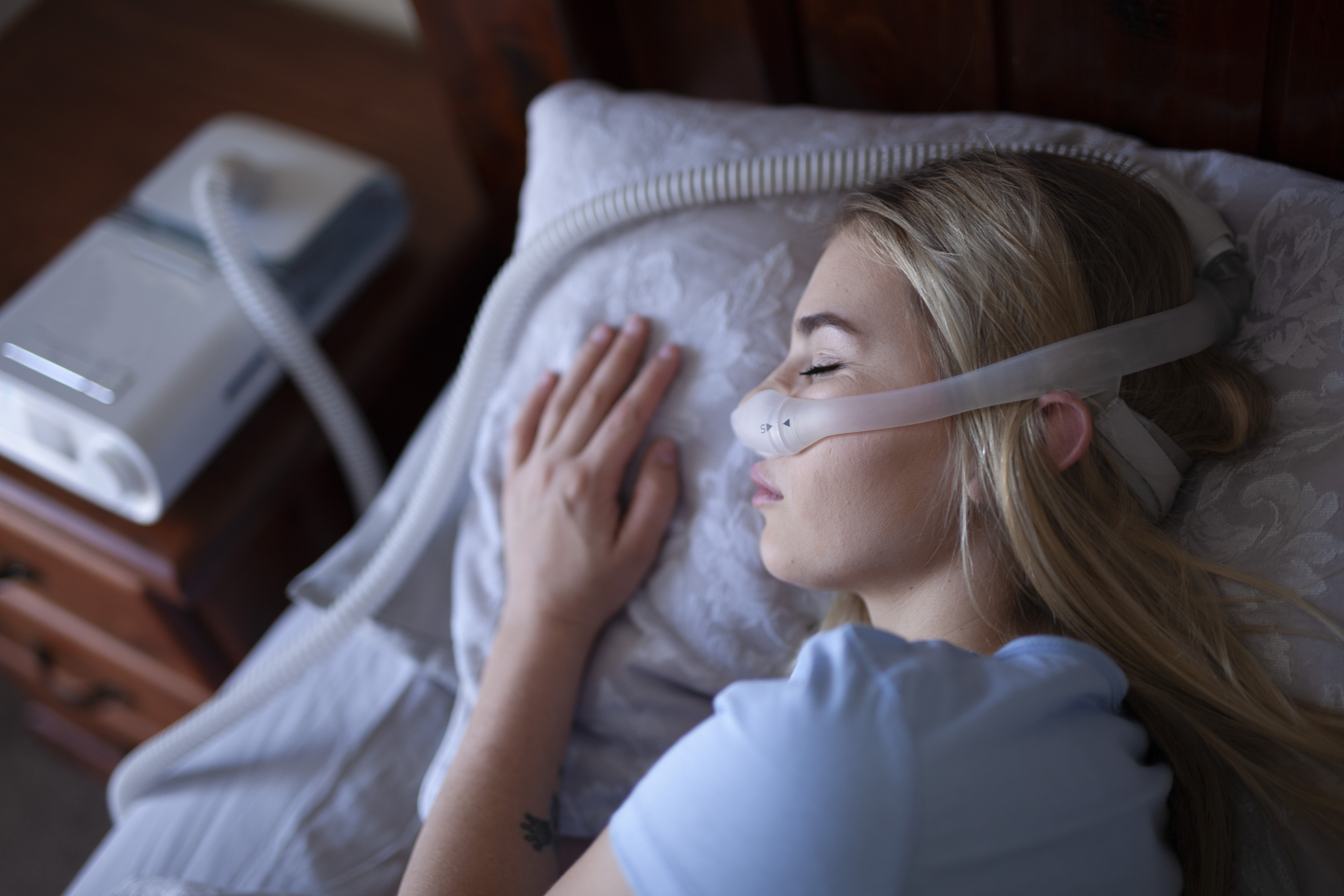Sleep apnea treatment reduces heart problems in patients with prediabetes, a new study finds
People with prediabetes and obstructive sleep apnea could reduce their daytime resting heart rate and risk of cardiovascular disease by using a CPAP machine at night
A new study found that continuous positive airway pressure (CPAP) treatment at night can lower daytime resting heart rate in patients with prediabetes who have obstructive sleep apnea, reducing their risk of cardiovascular disease. The study, published today in the Journal of the American Heart Association, was conducted by Dr. Sushmita Pamidi, Director of the Respiratory Epidemiology and Clinical Research Unit at the Centre for Outcomes Research and Evaluation of the Research Institute of the McGill University Health Center (RI-MUHC) and Dr. Esra Tasali, Director of the Sleep Research Center at the University of Chicago Medicine.
The discovery could potentially help the 1 billion people worldwide with obstructive sleep apnea, in which the prevalence of prediabetes and diabetes is over 60 per cent. Furthermore, the vast majority of patients with obstructive sleep apnea are undiagnosed.
The study’s findings are especially timely, given that people with diabetes or cardiovascular problems are among the most vulnerable to COVID-19.

This randomized controlled trial studied people with prediabetes, a condition where blood sugar levels are higher than normal but not high enough to be considered diabetic. Those who used CPAP treatment for two weeks had a drop in their resting heart rate by four to five beats per minute, compared to those who received placebo. Notably, with optimal CPAP treatment, their heart rates were not only lower at night, but also during the day.
“That’s significant,” says Dr. Tasali, noting that a drop of even one beat per minute in resting heart rate can lower the mortality rate and future risk of developing cardiovascular disease.
“A four- to five-beat-per-minute drop in heart rate that we observed is comparable to what you would get from regular exercise,” she adds. “Our breakthrough finding is the carryover of the lowered resting heart rate into the daytime, and the cardiovascular benefit of that.”
Resting heart rate is key to a person’s health and well-being. A high resting heart rate signals increased stress to the heart. It is a strong predictor of heart problems and death, the doctors said. Prior research has shown that in middle-aged people, every beat-per-minute increase in resting heart rate is associated with a 3 per cent higher mortality rate.
Obstructive sleep apnea is a disorder that causes people to repeatedly stop breathing at night, decreasing oxygen intake and disrupting their sleep. It is a serious health concern, increasing the risk of cardiovascular conditions such as high blood pressure, stroke and heart attack. It makes people sleepy during the day and heightens their “fight or flight” stress hormones, elevating their resting heart rate all day and night.
Doctors use CPAP to treat obstructive sleep apnea. It keeps a person’s airway open and oxygen levels steady during the night, thus lowers their heart rate. However, Dr. Pamidi isn’t encouraging people to go online and buy the machine. Obstructive sleep apnea is a medical diagnosis that must be made by a doctor after a sleep study.
“Our recent findings urge people who have prediabetes, diabetes or sleeping problems to be screened for sleep apnea,” says Dr. Pamidi.
Today, about 80 per cent of people with sleep apnea are undiagnosed. An estimated 50 to 70 per cent of people with prediabetes or diabetes have sleep apnea.
“The majority of patients don’t make a connection as to how their sleep can affect their hearts. With regards to their sleep apnea, patients just think how sleepy they are the next day,” says Dr. Tasali. “I always explain to my patients that sleep apnea can also be harmful to their cardiovascular health.”
This study is the first to examine the impact of optimal CPAP treatment on daytime resting heart rate,” says Dr. Pamidi. In their earlier research, Dr. Pamidi and Dr. Tasali found that effective treatment of sleep apnea with SPAP improves blood sugar levels in pre-diabetic patients, reducing their risk of diabetes.
About the study
The study Optimal CPAP Treatment of Obstructive Sleep Apnea Reduces Daytime
Resting Heart Rate in Prediabetes: A Randomized Controlled Study was conducted by Sushmita Pamidi, Florian Chapotot, Kristen Wroblewski, Harry Whitmore, Tamar Polonsky and Esra Tasali
DOI: https://doi.org/10.1161/JAHA.120.016871
This work was supported by grants from the National Institutes of Health and the Diabetes Research and Training Center at the University of Chicago.
About the RI-MUHC
The Research Institute of the McGill University Health Centre (RI-MUHC) is a world-renowned biomedical and healthcare research centre. The Institute, which is affiliated with the Faculty of Medicine of McGill University, is the research arm of the McGill University Health Centre (MUHC) – an academic health centre located in Montreal, Canada, that has a mandate to focus on complex care within its community. The RI-MUHC supports over 420 researchers and close to 1,200 research trainees devoted to a broad spectrum of fundamental, clinical and health outcomes research at the Glen and the Montreal General Hospital sites of the MUHC. Its research facilities offer a dynamic multidisciplinary
environment that fosters collaboration and leverages discovery aimed at improving the health of individual patients across their lifespan. The RI-MUHC is supported in part by the Fonds de recherche du Québec – Santé (FRQS). www.rimuhc.ca
Media contact
Fabienne Landry McGill University Health Centre [email protected]

